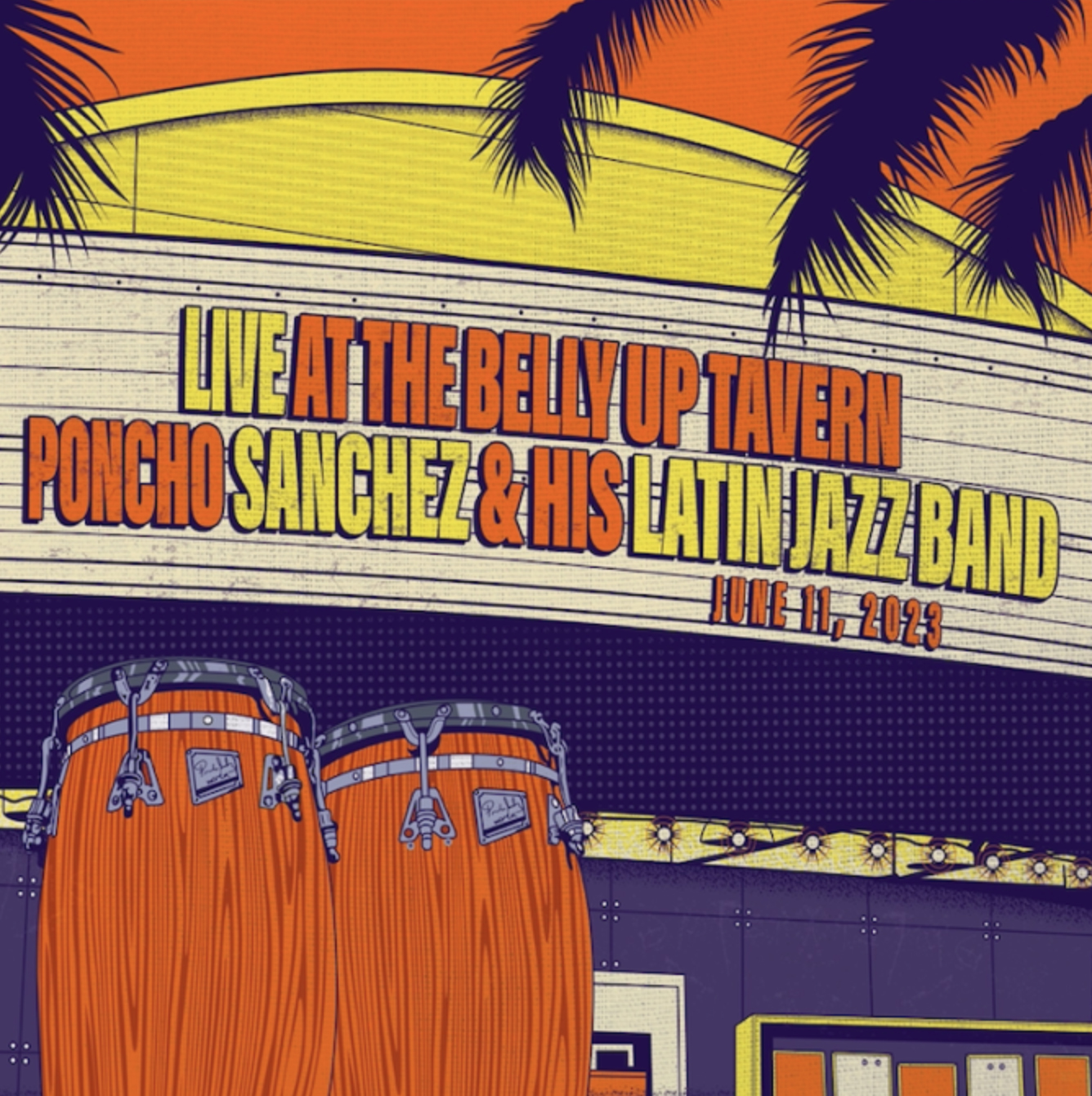CD Reviews
PONCHO SANCHEZ: Live at the Belly Up Tavern

Poncho Sanchez was born in Texas to a family of Mexican heritage yet has made his career turning out some of the best Cuban-style jazz dance music on the planet. His latest release was recorded at the Belly Up Tavern in Solana Beach. The old World War II-era quonset huts housing the Belly Up aren’t known for their acoustic purity, but the mix here is amazingly clean and full, reflecting a recent major technology upgrade at the venue.
Now 71 years old, Sanchez’s own drumming on congos remains a core of his band’s music. Yet, with more than three dozen albums following his 1979 debut, it might also be argued that the band itself is Sanchez’s true instrument.
And what an instrument it is: a well-oiled machine sounding far bigger than its eight to nine players: Like Jeannie and Jimmy Cheatham’s Sweet Baby Blues band, Sanchez’ combo is probably best described as a “little big band.” The band’s arrangers excel at making the outfit sound like a full big band, playing its three horns against the piano and rhythm section.
The 10-song set here is a mix of old Latin jazz favorites and new additions to the Sanchez canon.
Among the revisited tracks are the opener, “A Bientôt,” by Freddie Hubbard. Given more of a Latin flavor here, trumpeter Ron Blake handles the lead, albeit with a fatter sound than Hubbard’s own trumpet playing. Pianist Andy Langham trades leads with Blake just past the halfway point of the song, providing a nice contrast.
“Sabor, Sabor” was originally performed by the Fania All Stars, a group of Latin musicians who recorded on the Fania Records label in 1968. It’s played as a mid-tempo salsa here, with a gorgeous trumpet solo from Blake.
The Joe Cuba Sextet first performed “Llegue” on a 1964 outing. Sanchez’s crew presents it as a slightly up-tempo Latin jazz number. And a three-song medley of Sanchez’s own previous songs is arranged here as “Poncho in the One Ways,” also performed in a mid-tempo vein.
Of the new tracks, the most immediately accessible may be the second track on the album, “Poncho’s Beat,” a fast-paced mambo written by trombonist Francisco Torres, which was inspired by “Monguito’s Theme” (by Monquito Santamaria, son of the famed Cuban band leader).
On “Batiri Cha Cha,” the band finally cuts loose with a spirited dance number. With the horns soaring over a vocal, all while the rhythm section is laying down an irresistable cha-cha beat, the dance floor at the Belly Up must have been a joyous if exhausted spot, the song clocking in at 11 minutes!
The band slows things down considerably for the closing track, “Guara (Soul Sauce),” yet the audience’s audible responses are just as enthusiastic as on the previous, rollicking track.
All in all, this is another tremendous performance by one of the great Latin jazz bands still going today. And if the clean sounds here are indicative of what the Belly Up now offers bands in terms of recording opportunities, this may only be the first of many new “live at the Belly Up” albums to come!










